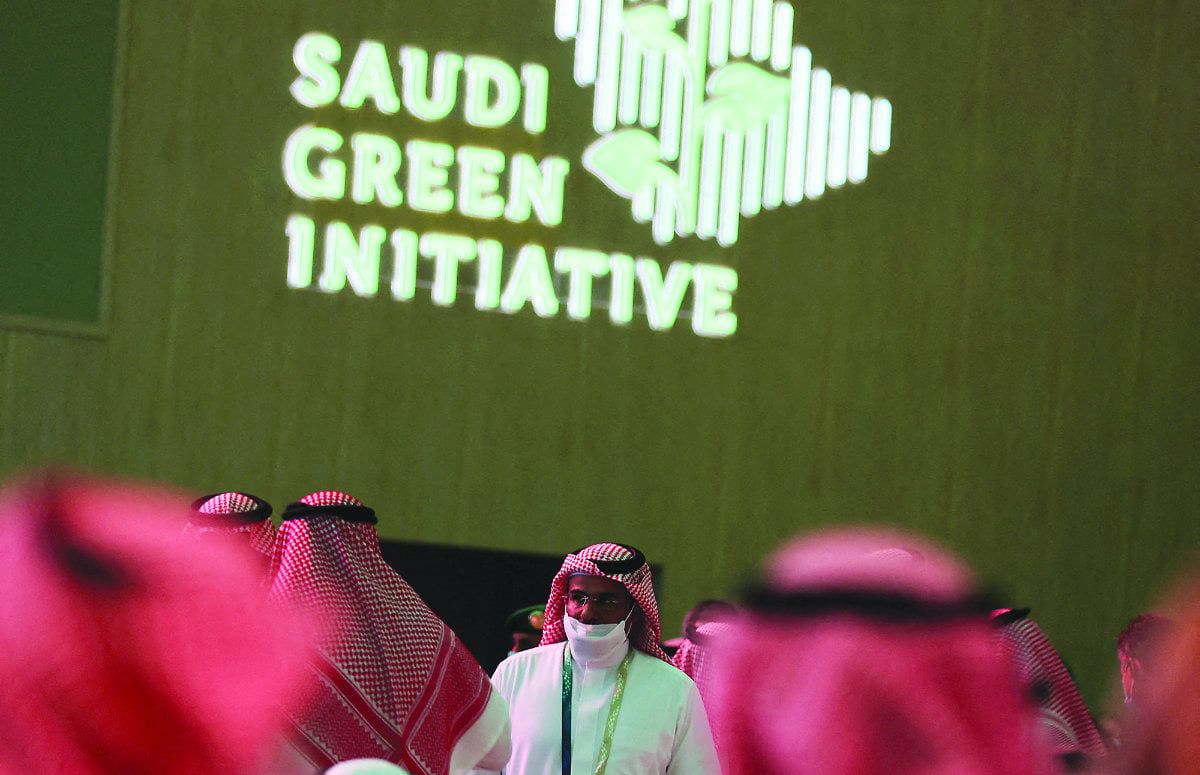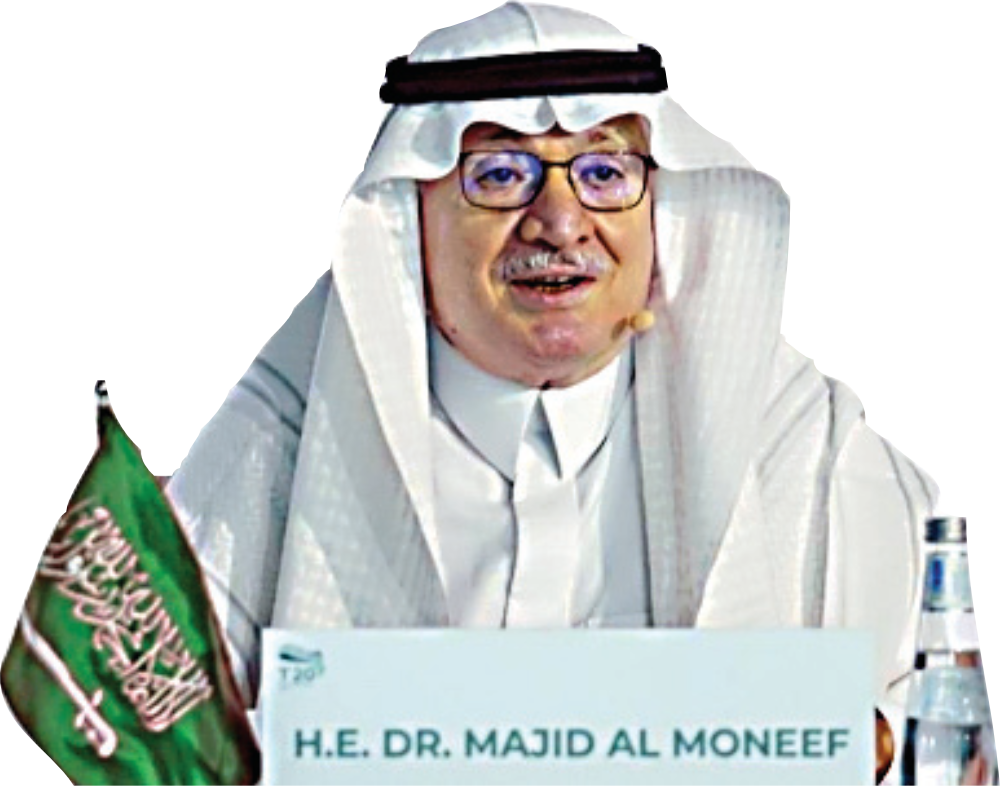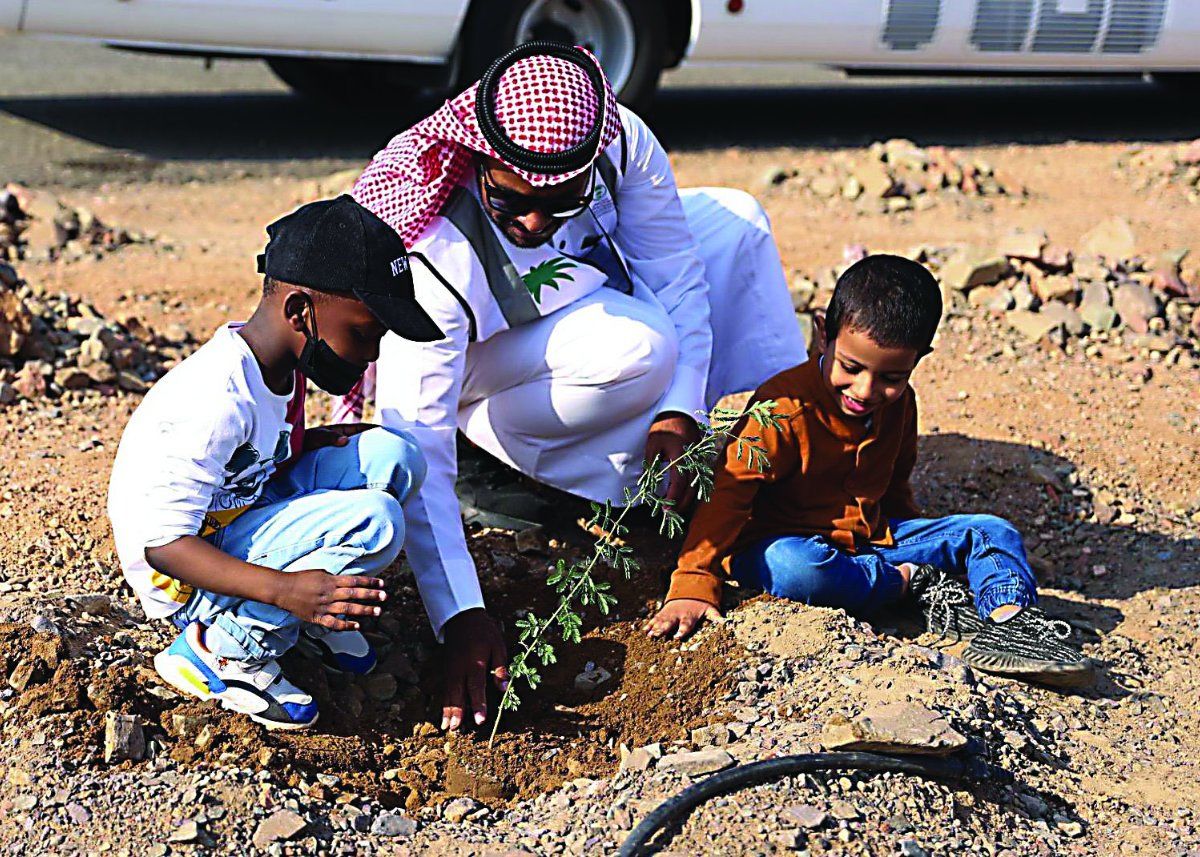
Mideast’s share of renewables in energy mix to double by 2030: SAEE chairman
In an exclusive interview with Arab News, the Saudi Association of Energy Economics Chairman Majeed Al-Moneef said that the Kingdom, and the Middle East region as a whole, will be at the forefront of both traditional and renewable energy sources, as it steadily progresses in achieving sustainable goals.
“We will follow the world trend in increasing the share of renewables in our energy mix. But that will not be done by sacrificing our oil and gas sectors, but along with the development of our oil and gas sectors,” said Al-Moneef.
The chairman of SAEE which works toward building capabilities in energy economics said the Middle East region is playing a crucial role in the energy transition journey, as it continues supplying hydrocarbons which are pivotal as the world enters a new energy system.
“We have the Saudi Green Initiative and Middle East Green Initiative. So, we are an important player in traditional energy sources and renewable energy sources. We will be in the forefront of both.”

Al-Moneef expects that the share of renewables in the energy mix in almost all regional countries will double or triple by 2030.
Talking about Saudi Arabia’s Vision 2030, the SAEE chairman said a massive socioeconomic and institutional transformation is taking place across all sectors including energy as the objective is to diversify the economy. “We have got new energy resources like renewables, hydrogen, carbon sequestration and carbon management. They are the sectors of tomorrow. So, we are investing in future energy.”
This comes as Saudi Arabia is leapfrogging in sustainable energy generation while setting a net-zero target for 2060.
Al-Moneef pointed out that the region’s financial institutions including corporates, government financing, and multi-regional financing institutions have a crucial role to play in renewable energy projects to achieve sustainable goals within the stipulated timeline.
IAEE International Conference
SAEE which works toward facilitating dialogue among various stakeholders is hosting the International Conference of the International Association for Energy Economics for the first time in the Middle East and North Africa region in Riyadh with the King Abdullah Petroleum Studies and Research Center.
Al-Moneef sounded confident that the IAEE conference which begins on Feb. 4 will witness a record number of participants.
“This conference will have the largest registration in the history of energy economic conferences. This is the first time that such a conference is being held in the region. So, this is a testament to the importance of Saudi Arabia and the region in the global energy sector,” he said.
Al-Moneef revealed that regional universities will present scientific papers during the event, and added that events like these hold significance as “they will accelerate the participation of more regional research institutions, individuals and students in the energy sector.”
 Majeed Al-Moneef, chairman of the Saudi Association of Energy Economics.
Majeed Al-Moneef, chairman of the Saudi Association of Energy Economics.
He disclosed that they had two major meetings involving all the universities in Saudi Arabia to encourage them to submit papers. “We tried to have a wide representation of the region. So, we have good numbers. As a matter of fact, something close to 40 percent of papers is from Saudi Arabia and the region.”
The SAEE chairman pointed out that the purpose of the conference is to encourage research in energy economics in the region. “That was our main goal. The field of energy economics is of crucial importance to the region, and we should have more researchers in the research institutions, individuals, and students who are engaged in that subject matter.”
He revealed that the conference will hold special plenary sessions on investment and trade in the energy sector, “as the conflict in Ukraine has changed the trade flows of oil and gas globally.”
Al-Moneef further pointed out that Saudi Arabia and the region as a whole will host more similar events related to energy economics in the future.
“As a matter of fact, one of the outcomes of this conference will be to have annual regional conferences in the Middle East. So, one of the outcomes will be to institutionalize a MENA Middle Easy symposium to be held every year,” he said.
 Saudi Arabia is leapfrogging in sustainable energy generation.
Saudi Arabia is leapfrogging in sustainable energy generation.
Al-Moneef noted that Saudi Arabia will be on the organizing committee for the MENA Energy Economics conference that will be held every year, and the Kingdom will make sure that researchers from the institutions in the nation will participate in these upcoming events.
Regional cooperation
Talking about the necessity to ramp up power generation and increase the efficiency of energy usage, Al-Moneef stressed that sufficient investments are needed to elevate efficiency “so that the production process will be clean, and efficient with the least cost possible.”
He also highlighted that international and regional cooperation is very crucial to ensure the growing power demand in the future.
Al-Moneef who had served in multiple high-profile positions including the Secretary General of the Supreme Economic Council of Saudi Arabia, Governor of Saudi Arabia in the Board of Governors of OPEC, stressed the need to create a common grid that will solve power-generating issues. "It will allow countries with power scarcity to secure help from nations that produce excess power.”
He added that a common energy market will be soon materialized in the Middle East region, supported by a proper regulatory framework.
According to him, promoting regional cooperation in the energy field is the key to a new Middle East. “And we have to improve the transportation lines.”
For Al-Moneef, what the region needs is the proper regulatory framework. “Europe has done it. They have put in place the regulatory framework to see to it that there is a common energy market. We can have someday a common Middle East energy market. We are capable of doing it,” he signed off.











